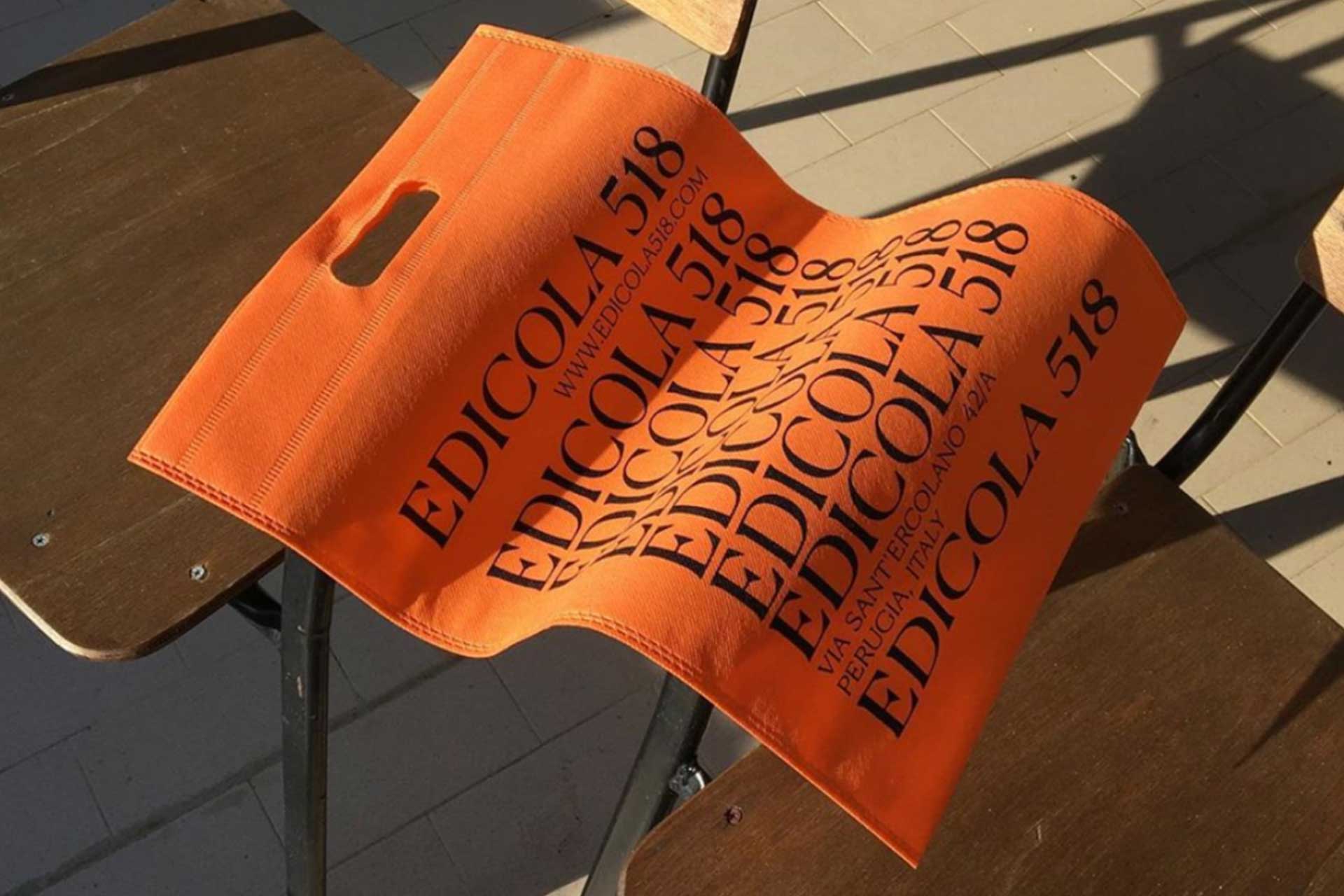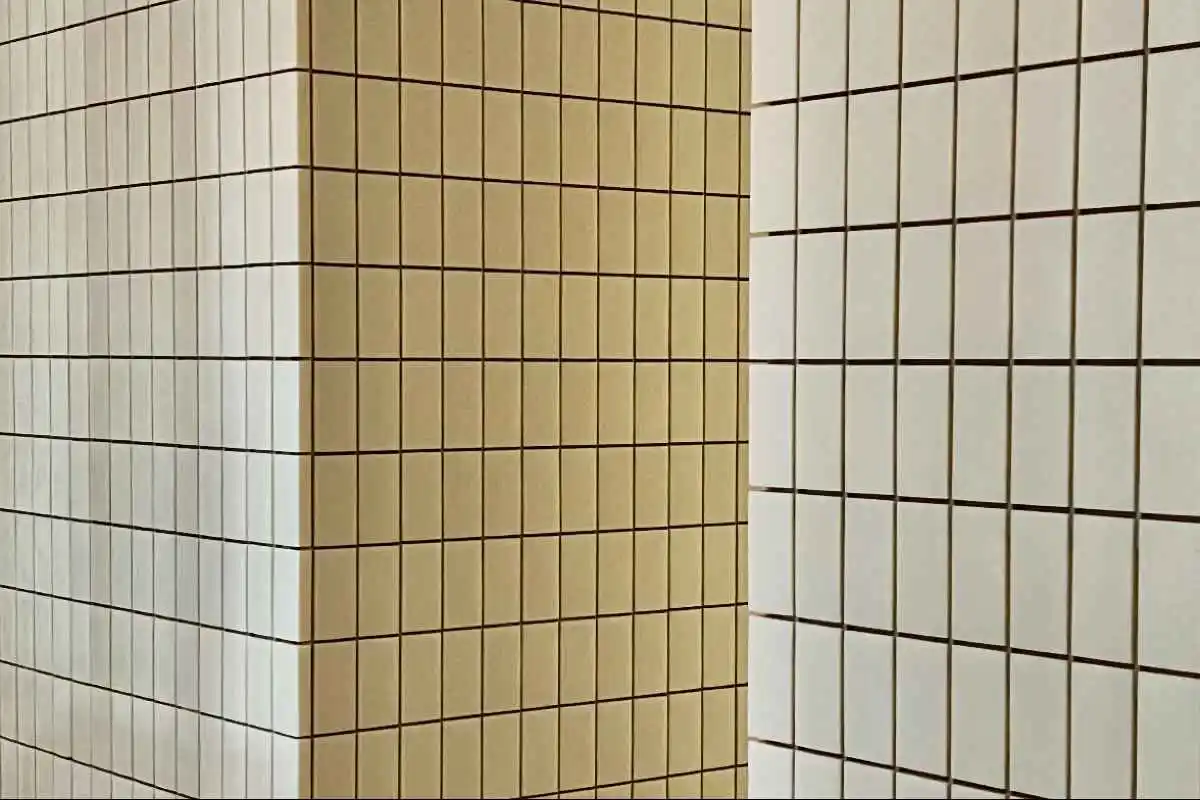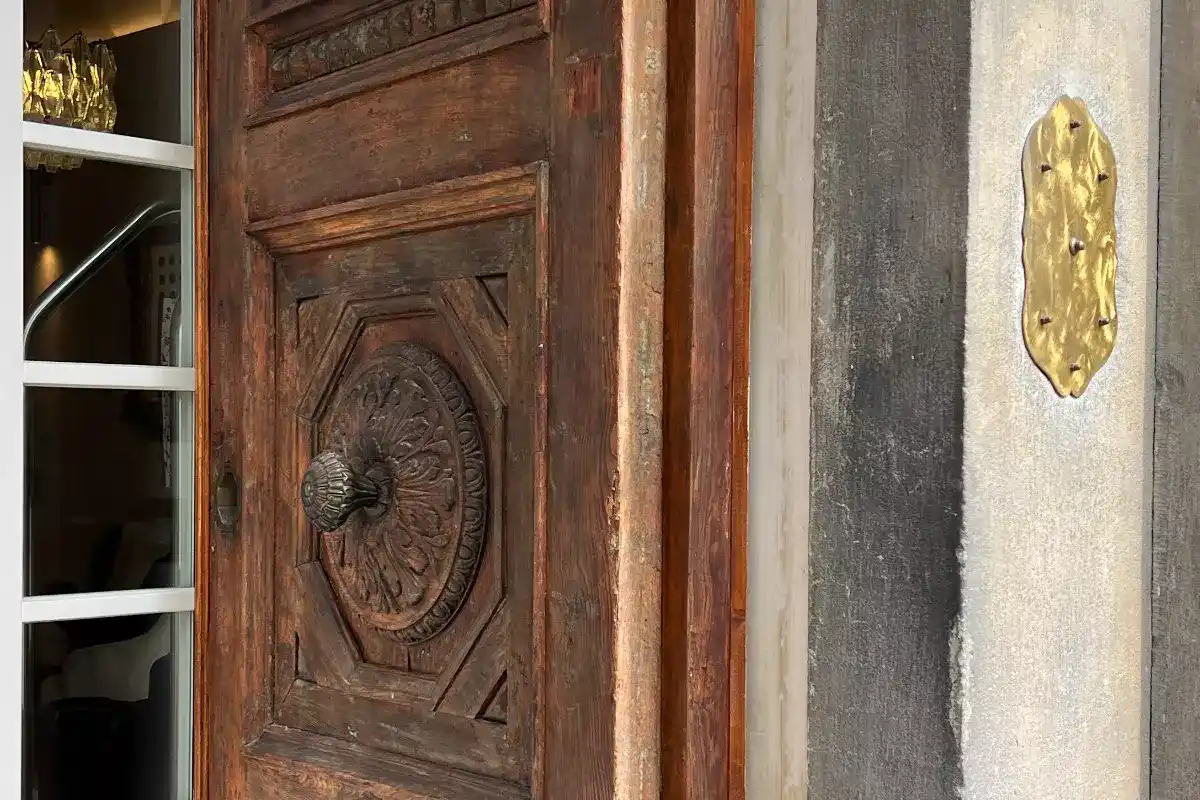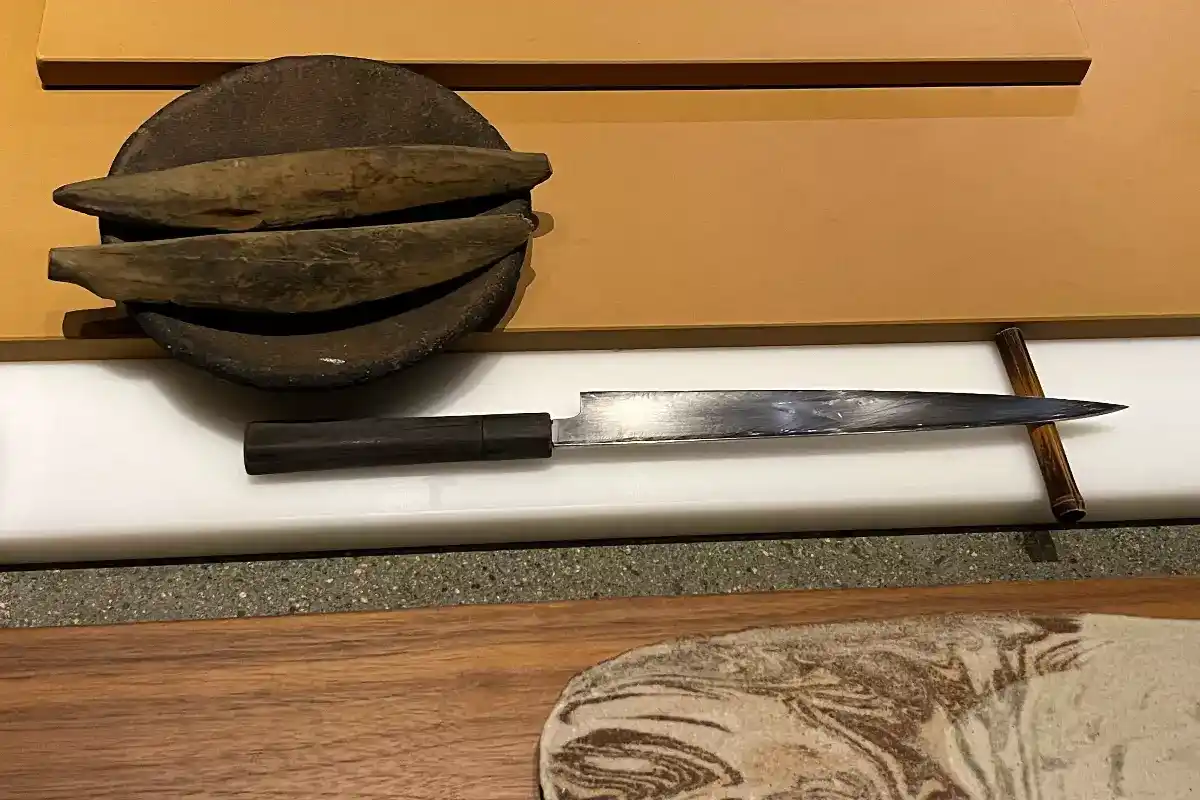An unused kiosk rises to a life between art space and bookstore. Four square meters and an argument about independent publishing
Edicola 518: Perugia’s Indie Publication Point
In the center of Perugia, in a street opposite the church of Sant’Ercolano is a newsagent stand, Edicola 518. It is one of the city’s historic kiosks and has stood there since the 1900s. If you come closer, however, you will immediately realize that it is not like the others, this one has no newspapers, weekly magazines or bus tickets. Its racks hold only magazines and books by indie publishers from over the world. This is Edicola 518 Perugia and it was founded on the first day of June in 2016 by a group of artists, students and writers in Perugia who shared certain artistic needs. The project came about as the arrival point of a path undertaken in 2014 by the name of Emergenze.
The group founded the magazine Emergenze and has published four issues to date, and has organized a series of art and publishing related initiatives. «We were looking for an everyday location to relaunch our mission», says Antonio Brizioli, one of the founders. «We were producing publications and projects and creating a group; we therefore felt the need for a place in the city». The Emergenze group considered a space for art or a traditional bookshop. In Perugia there were closed kiosks, and they decided to buy one and turn it into an indie publication point.
Edicola 518: A Symbolic Space for an Artistic Challenge
The name, Edicola 518, comes from what happened when, despite not wanting to open a traditional newsagent’s, Antonio decided to go and talk with the distributor who supplied the newsagents in Umbria, to find out if there were margins for collaboration, perhaps with a limited range of titles. «While we were in the waiting room, we heard a female voice saying ‘those from 518 are here’. My colleague Paolo and I looked at each other, wondering what this 518 was. Only later did we find out for large-scale retail distribution each newsagent’s shop is a dot on a regional map that corresponds to a number, an automatic impersonal way of identifying the players». If they decide not to adhere to this kind of distribution, as a dig at the system they decided to adopt the name it had assigned them, Edicola 518, ‘Newsagent kiosk 518’.
After graduating high school in Perugia, Antonio Brizioli moved to Milan to study contemporary art history. Having graduated, he returned home and explains his decision to set up Edicola 518 Perugia right there in the capital city of Umbria and not in a big metropolis as follows: «Like me, most of my partners are from Perugia. Our interest was to follow through a project of this kind in a medium-size provincial city. Although Perugia is a university city with an international vocation linked to the university, it is a small city, livable and personal». The Emergenze group chosed this kiosk because it was love at first sight. If not in the top part of the old city, it is located in a symbolic area, opposite the church of one of the city’s three patron saints, a location linked to the founding legend of Perugia. «It is small, four-square-meters, despite our slogan that reads ‘an infinite space’. It matched this controversial desire of ours to launch a very ambitious artistic challenge, out of a minimal space».
MacGuffin and Migrant: Worlds within the Pages
The kiosk holds over four hundred magazines and the same number of books by indie publishers. If you ask Antonio which his favorite magazine is, he answers without hesitation, MacGuffin, a Dutch publication that has an explanatory subtitle ‘the life of things’. It comes from the world of design and dedicates each monographic issue to an object, a bed, for example, or a window, a rope or a washbasin. The last issue, for example, focused on trousers. Each issue then creates a richly articulated world related to the history of this single article. In a magazine with graphic design that starts with an idea and uses it to create culturally relevant products, while maintaining its levity. «There is another one that I think is a happy combo of form and content, Migrant. It is interesting, about the world of immigration in a wide sense. It deals with how everything circles in a global way. People, goods, finance, water or illegal trade. It features scientifically relevant essays, but with very unusual graphics and each edition is constructed around a color. In my opinion it works really well».
Exploring Italy’s Niche Publications: Archivio, Sirena, and More
Antonio highlights that there are projects in Italy of interest. One of these is Archivio, based in Turin with three publications to its name so far. This publishes only non-digitized archive material, sourced worldwide. «This is the magazine that best explores an expedient for creating culture, through a pleasing object with innovative graphic design. Another title I want to mention is Sirena, linked to the sea and printed on paper made from seaweed. So, Italy too makes its own small contribution to this sector». Bestsellers include plenty of Italian titles, such as Cartography. Each issue describes three destinations in the world, told in photographs, words and detailed itineraries. Or the bookazine Dispensa, which talks about food in a mixture of words and images. Another cookery-related title is Cook_ink., which illustrates how food and recipes tell the story of the world. «They are an Italian project that aren’t very successful in the Italian retail sector, which is not built around this kind of thing», explains Antonio Brizioli. «They are obviously given special attention by somewhere like Edicola 518, an infrastructure that speaks to a niche of readers and does so in the right way».
Overcoming Obstacles: The Journey of Edicola 518 Perugia
Three years after opening, Antonio Brizioli is pleased with this activity: «My glass is full, in the sense that, having been here since day one, I remember how we started out. I remember people’s skepticism and the sacrifices we have made. In the end we have managed to create something that for the moment is holding up well and which has the support of much of the city. We are known outside Perugia, and in the sector and we get asked to take part in the main national festivals. This feels like a tiny miracle to me». There have been plenty of difficulties, however, because Edicola 518 Perugia is a project that arose from the desire of its founders to tackle and overcome each obstacle one by one. «The social fabric, not of Perugia, but in cities, has little time for certain initiatives. The closure of lots of newsagent’s kiosks, for example, is always blamed on the changing times, whereas more complex mechanisms are actually involved, which nobody is looking into. It is paradoxically, difficult to make certain publishers realize that it makes more sense to work like this, with a project like ours, because it means so much more in both cultural and economic terms. Publishing houses have by now become accustomed to a kind of distribution that does it all for them, and then pays them crumbs. They complain, but do nothing to seek new ways. The world of publishing and culture in general is very stagnant and passive and I won’t hide that we have had to, and still do, knock down many walls by dint of banging our heads on them».
Edicola 518: Thriving Through Self-Sustainability and Persistence
Edicola 518 survives solely thanks to its sales of magazines. The young founders of Emergenze print their own magazine and they have bought the kiosk, which didn’t cost a lot but was an investment. With time they have managed to acquire additional premises, and to grow and take root. «We decided to buy this structure with our savings and make these locations our own because the public sector finds it hard to offer long-term support for projects like ours. I know many examples that came about thanks to public funding and which are constantly in difficulty because all it takes is a change in local government or a cut in funding to make them no longer sustainable. We have counted on our micro-economy. We have been awarded grants, and been assigned public funds, but we see these as extras for doing other stuff».
Edicola 518: Tailored and Potential for Expansion
A few months ago, they set up a cooperative with four partners. They followed a logic of economic sustainability of the project, because the kiosk is their life and not a temporary project. Edicola 518 Perugia was not conceived as a franchise, it was not founded to be reproduced in an automatic manner in other places. It is about very minute numbers, fine balance, linked to the needs and the voice of its location. According to Antonio Brizioli, it is a project tailored to suit Perugia. This does not however rule out experimenting with exporting it. There is one up and running in Venice for example. Magwall opened in San Polo in 2018, run together with the leather shop Declare, which has dedicated one of its walls to nice publications, in the form of indie magazines alongside minimal-design bags and accessories in leather. Collaboration is going well, but it works because it is run by local people who know their city. The owners of Declare have taken on the energy and selection of reading matter from Edicola 518, but they have interpreted it according to their own needs. «I have faith in this encounter; our project can be adopted by people with a similar sensibility in other places and that they can create spaces with the same kind of magic», says Antonio. «They must not be identical, that would make us a chain and that is not our intention, we don’t have the energy or the resources to support a development of this kind».
Events at Edicola 518 Perugia
Each year, the folk at Edicola 518 Perugia organize a series of events that has become a real festival and this year celebrates its fourth edition. They host writers, researchers and professionals, bringing them to Perugia on a horizontal, accessible level and always free of charge. The idea is not to promote culture or present magazines, but to use these presentations as a pretext for bringing cultural reflection into the city. One of these encounters led to a publishing project on anarchy, which goes by the red-rag name of Lezioni sull’Anarchia (lessons on anarchy). «As far as I am concerned, these parallel events are the only premise needed. The kiosk will exist for as long as there is the possibility, desire and enthusiasm to continue this kind of cultural activity. If it were to become a retail business where the things that mattered were the books at the end of the month, I would be much less interested. The two have gone hand in hand».
Written on one side of the kiosk, slightly out of sight, but visible to those coming up from below, is the hashtag ‘#nopaura’ (no fear). «We have always worked half seriously and half ironically, using a contemporary way of communicating. We have big social media visibility and we work a bit in those languages, trying to stir things up a little. #nopaura is one of the hashtags that we have championed since the beginning because one of the things that people say to us often is ‘you were really brave to do something like this’. This venture was a madness, especially in the early stages and it was met with lots of skepticism. This hashtag is like a lucky charm hung around our necks. #nopaura, no fear, because we do not know what will happen or how the Edicola 518 experience will end, it is simply our intent and our desire».
Edicola 518, Perugia
Via Sant’Ercolano, 42, Perugia, Italy.




















